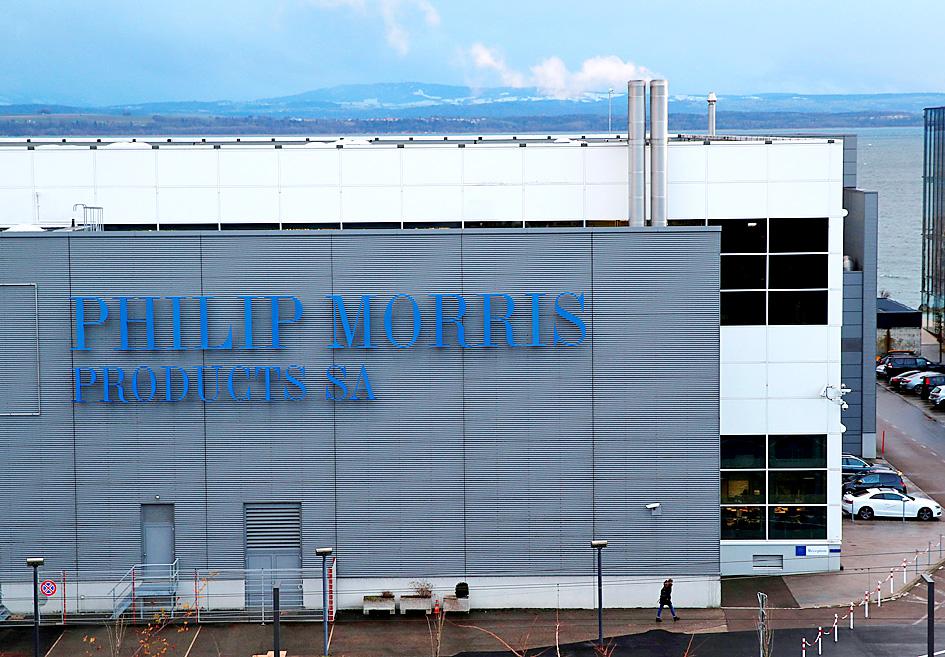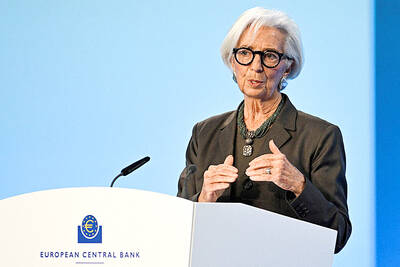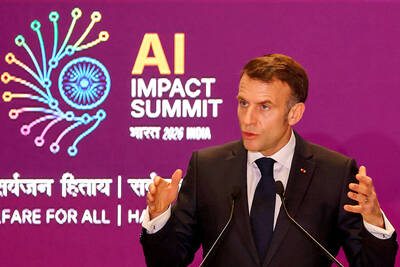Cigarette maker Philip Morris International Inc (PMI) has clinched a £1 billion (US$1.38 billion) takeover of inhaler maker Vectura Group PLC after winning the backing of about 75 percent of the British company’s shareholders.
Vectura shareholders had until Wednesday to decide whether to support the £1.65 per share bid from Philip Morris, which sought to buy the London-listed asthma drug maker as part of its plan to go “smoke-free” and switch to healthcare and wellness products.
“We have reached an important milestone in our acquisition of Vectura and are pleased to have secured over 74 percent of the company’s shares, in excess of the 50 percent required to make our offer unconditional and PMI the majority shareholder,” CEO Jacek Olczak said in a statement yesterday.

Photo: Reuters
PMI had received the shares from shareholders through a public tender offer process, and the cigarette maker’s offer for Vectura can no longer be withdrawn.
PMI, which fought off private equity firm Carlyle Group for the buyout of Vectura, had switched its proposal to a takeover offer from a so-called scheme of arrangement to raise its chances.
The switch allowed PMI to require the support of holders of slightly more than 50 percent of Vectura shares for the deal to go through.
While PMI has received regulatory clearances for the deal and won the backing of Vectura’s board, health groups are questioning the idea of a tobacco company making money from treating the very illnesses that cigarettes cause.
Olczak said that PMI would provide Vectura’s scientists with the resources and expertise to reach a target of at least US$1 billion in net revenue from its Beyond Nicotine products by 2025.
The US-based company has also extended the deadline to Sept. 30 for the remaining Vectura shareholders to tender their shares.

European Central Bank (ECB) President Christine Lagarde is expected to step down from her role before her eight-year term ends in October next year, the Financial Times reported. Lagarde wants to leave before the French presidential election in April next year, which would allow French President Emmanuel Macron and German Chancellor Friedrich Merz to find her replacement together, the report said, citing an unidentified person familiar with her thoughts on the matter. It is not clear yet when she might exit, the report said. “President Lagarde is totally focused on her mission and has not taken any decision regarding the end of

French President Emmanuel Macron told a global artificial intelligence (AI) summit in India yesterday he was determined to ensure safe oversight of the fast-evolving technology. The EU has led the way for global regulation with its Artificial Intelligence Act, which was adopted in 2024 and is coming into force in phases. “We are determined to continue to shape the rules of the game... with our allies such as India,” Macron said in New Delhi. “Europe is not blindly focused on regulation — Europe is a space for innovation and investment, but it is a safe space.” The AI Impact Summit is the fourth

CONFUSION: Taiwan, Japan and other big exporters are cautiously monitoring the situation, while analysts said more Trump responses ate likely after his loss in court US trading partners in Asia started weighing fresh uncertainties yesterday after President Donald Trump vowed to impose a new tariff on imports, hours after the Supreme Court struck down many of the sweeping levies he used to launch a global trade war. The court’s ruling invalidated a number of tariffs that the Trump administration had imposed on Asian export powerhouses from China and South Korea to Japan and Taiwan, the world’s largest chip maker and a key player in tech supply chains. Within hours, Trump said he would impose a new 10 percent duty on US imports from all countries starting on

STRATEGIC ALLIANCE: The initiative is aimed at protecting semiconductor supply chain resilience to reduce dependence on China-dominated manufacturing hubs India yesterday joined a US-led initiative to strengthen technology cooperation among strategic allies in a move that underscores the nations’ warming ties after a brief strain over New Delhi’s unabated purchase of discounted Russian oil. The decision aligns India closely with Washington’s efforts to build secure supply chains for semiconductors, advanced manufacturing and critical technologies at a time when geopolitical competition with China is intensifying. It also signals a reset in relations following friction over energy trade and tariffs. Nations that have joined the Pax Silica framework include Japan, South Korea, the UK and Israel. “Pax Silica will be a group of nations